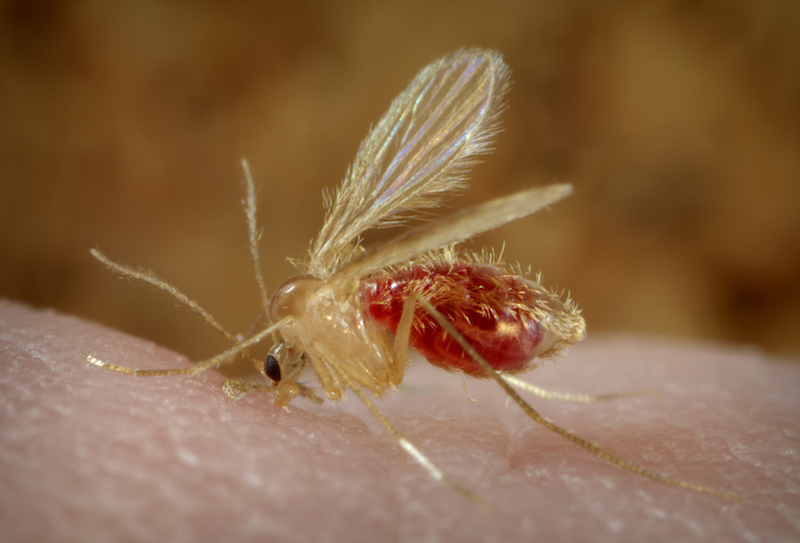
Phlebotomus papatasi, the sandfly, vector of leishmaniasis // Photo: Frank Collins
New research may lead to vaccine for parasitic disease
Promising research from the University of Manitoba is raising new hopes in the fight against a pervasive and potentially deadly disease that affects millions around the world and is increasingly expanding to non-traditional locations.
Leishmaniasis is a parasitic disease found in parts of the tropics, subtropics and southern Europe and is spread by the bite of infected sandflies. According to the World Health Organization, an estimated 1.3 million cases of leishmaniasis occur annually, leading to 20,000-30,000 deaths. The disease is rapidly spreading to other areas of the world due to increased international travel, globalization and military conflicts.
In an article published this week in Science Translational Medicine, Jude Uzonna, associate professor of immunology and medical microbiology in the College of Medicine, and his research team have isolated an antigen that boosts immunity against the disease.
“There is currently no clinically effective vaccine against leishmaniasis. We identified a cross-species antigen called PEPCK that induces a robust response in both mice and humans,” says Uzonna, Manitoba Health Research Chair Professor in Immunology. “Our vaccination experiments clearly show that PEPCK is an important vaccine candidate for cross-species protection against leishmaniasis.”
“This research is an incredible breakthrough that has the potential to protect millions of people around the world and save lives,” says Digvir Jayas, University of Manitoba vice-president (research and international) and Distinguished Professor.“This study shows, once again, how the innovative research coming out of the U of M is making a positive impact globally.”
The findings are attracting international interest.
“Our study rekindles hope for the potential and real possibility of developing a cross-species protective vaccine against the disease,” says Uzonna. “It also provides a new perspective and approach to assessing and identifying mechanisms of immunity against leishmaniasis and critical new information that could help vaccine designs and vaccination strategies against the disease.”
Research at the University of Manitoba is partially supported by funding from the Government of Canada Research Support Fund.






